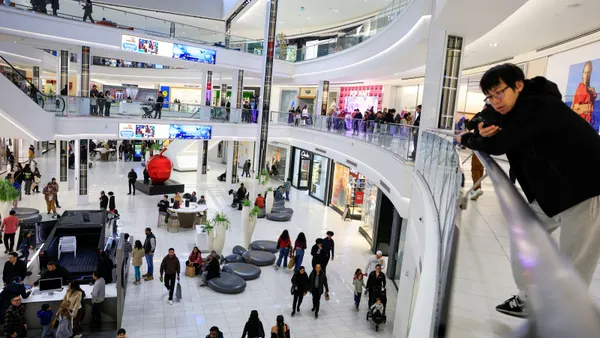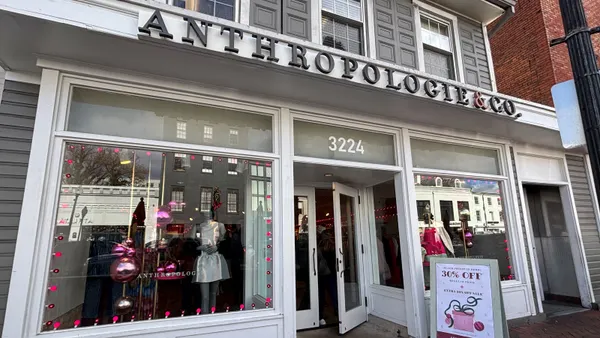Dive Brief:
-
Newly independent sneaker brand Puma on Thursday said that first quarter consolidated (currency adjusted) sales rose about 21% (or about 12% in reported terms) to € 1.13 billion ($1.4 billion, per current conversion rates), up from € 1 billion ($1.24 billion) in the year-ago quarter. The operating result (earnings before interest and taxes) in the first quarter rose to some € 112 million ($139 million), up from € 70 million ($87 million) a year ago, according to a preliminary report.
-
Puma now expects that currency-adjusted sales will rise between 10% and 12% (up slightly from its previous guidance for about 10%) and that EBIT will come in between € 310 million ($384 million) and € 330 million ($409 million), also up slightly from between € 305 million ($378 million) and € 325 million ($402 million). In line with its previous guidance, the company expects net earnings to "improve significantly in 2018."
-
In January, French luxury conglomerate Kering divested itself of the athletic shoe and apparel brand. Puma will publish a complete overview of its first quarter 2018 results on April 24, the company said.
Dive Insight:
Puma didn't blink when Kering spun it off earlier this year, as executives said the move "would lead to a greater free float of Puma stocks, providing investors an enhanced possibility to invest in Puma and allowing the company to reaffirm its business strategy."
That future lies at least in part in continuing the fashion emphasis that Kering brought to the brand, considering that street styles are increasingly preferred by athletic shoe shoppers. Sneakerheads, with their preference for streetwear, are looming ever larger in sports footwear sales. On the performance side, running shoe sales fell 7%, and training sales declined 15%, while leisure styles grew 17% and captured $9.6 billion in sales in 2017, according to another report by the NPD Group.
Puma has captured the imaginations of teens who prefer street styles and like the retro look of the brand, like the SS18 collection, forged in collaboration with Detroit rapper "Big Sean" Anderson, released earlier this month. It's a lesson that Puma's three main rivals — Nike, Adidas and Under Armour — are grappling with, as small e-commerce sneaker players like Stadium Goods, Greats and others work to capitalize on that market shift. LVMH Luxury Ventures, an arm of luxury conglomerate LVMH established a year ago to invest in small fashion, cosmetics and accessories companies, in February announced an investment in Stadium Goods, although it declined to say how much.
The trend is also leading several major retailers and brands to jump in, further stoking the competition. Zappos, for example, unveiled a retail concept last year highlighting classic sneakers, with a dedicated website landing page and pop-ups in New York. Also last year, Lululemon launched three sneaker styles with Athletic Propulsion Labs, and Adidas reclaimed the number two spot among the three big players in part thanks to its focus on urban aesthetics and streetwear. Matt Powell, NPD group vice president and senior industry advisor of sports, noted in his blog post last week that, "Today’s consumer wants unique products, made by unique brands and sold in unique retailers."














